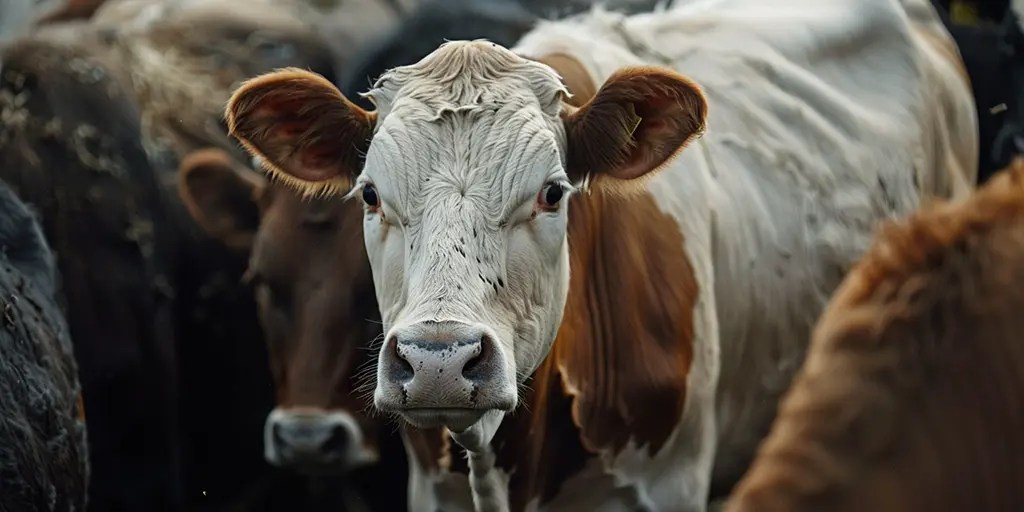When global elites and bureaucrats decide they must “fix” the world, the results often speak for themselves. Take the latest technocratic debacle: Bovaer, a feed additive designed to reduce methane emissions from cows, marketed as a “climate-friendly” solution. It’s now being shelved by Norwegian dairy producer Q-Meieriene after consumers flatly rejected its so-called “climate milk.”
This is more than a simple story of market rejection. It’s a cautionary tale of what happens when governments, corporations, and globalists push policies and products that tamper with the food supply to address a problem that may not even exist.
The Quest to Solve a “Crisis”
Bovaer, developed by DSM-Firmenich, has been touted as a game-changer in the fight against methane emissions—a major target of climate policies. The additive is said to suppress a key enzyme in the cow’s digestive process, reducing methane emissions by up to 30%. Regulatory bodies in over 68 countries, including the EU, Australia, and the U.S., have approved its use.
But let’s step back for a moment. Why are we targeting cow burps and farts in the first place? Methane is indeed a greenhouse gas, but it’s also a short-lived one that breaks down in the atmosphere within about a decade. Moreover, cows and bison have been emitting methane for millennia without triggering apocalyptic climate shifts. Yet suddenly, livestock emissions are treated as a planetary emergency demanding immediate action.
This myopic focus on cow methane is a prime example of how climate zealotry warps priorities. Rather than addressing real and immediate issues—like the energy crises their own policies create—governments and globalists have decided to micromanage how your milk is produced, all to reduce emissions by an imperceptible fraction of a percentage point.
Consumer Rebellion
The backlash against Bovaer has been swift and fierce. In Norway, Q-Meieriene began using the additive in 2023, branding the resulting product as “climate milk.” The response? Consumers overwhelmingly rejected it, leaving supermarket shelves stocked with unsold cartons while Bovaer-free milk flew off the shelves.
Facing dismal sales, Q-Meieriene recently announced it would discontinue the use of Bovaer, stating:
“Demand for Q climate milk has not been high enough to continue production…we phased out the use of methane suppressants in cow feed and are putting this project on pause.”
https://www.nettavisen.no/nyheter/ville-redde-klimaet-med-prompe-fri-kumelk-snur/s/5-95-2166980
This is not merely a marketing failure. It reflects a broader consumer revolt against the technocratic imposition of “solutions” no one asked for. People are increasingly skeptical of being told that their daily choices—what they eat, how they travel, how they heat their homes—must be sacrificed on the altar of climate orthodoxy.
What Are They Hiding?
One of the most glaring issues with the Bovaer debacle is the lack of transparency. Supporters insist the additive is safe, with regulatory agencies claiming that Bovaer is metabolized in the cow’s stomach and doesn’t transfer into the milk or meat. But these assurances don’t address broader concerns.
What are the long-term effects of tampering with the natural digestive processes of livestock? Why is there such a rush to roll out untested solutions before these questions are answered?
This isn’t just about methane or milk. It’s part of a larger pattern of globalist overreach, where unproven technologies are foisted upon the public in the name of saving the planet. The uncertainties and potential unintended consequences are ignored, while dissenters are dismissed as ignorant or conspiratorial.
The Cost of Technocratic Zeal
The Bovaer case reveals the fundamental arrogance of climate policymakers. They presume to know what’s best for everyone, overriding centuries of agricultural tradition and the preferences of ordinary people in favor of top-down diktats.
But their schemes often fail to account for basic realities. Milk production, like most aspects of life, is a complex system with countless interdependencies. Intervening in such systems with narrow, technocratic fixes can easily do more harm than good.
Even if Bovaer’s methane-reducing claims are accurate (and that’s still up for debate), its actual impact on global temperatures would be so minuscule as to be undetectable. Meanwhile, the costs—economic, ecological, and societal—are potentially enormous.
This raises an uncomfortable but essential question: who benefits from all of this? It certainly isn’t the average consumer, who ends up paying higher prices for milk marketed with dubious claims. Instead, the beneficiaries seem to be the corporations and bureaucracies that profit from the endless churn of climate regulations, subsidies, and greenwashing schemes.
A Problem That Doesn’t Exist
At its core, the push for products like Bovaer rests on the assumption that we face a climate crisis of unprecedented scale. But this assumption is far from proven. Climate models—riddled with uncertainties—predict catastrophic warming that keeps failing to materialize in the real world. Methane’s role in this alleged crisis is even less certain.
Yet rather than acknowledge these unknowns, climate policymakers double down on their interventions. The result is a cascade of ill-conceived policies that disrupt lives, erode trust, and impose enormous costs without delivering measurable benefits.
The rejection of “climate milk” shows that ordinary people aren’t buying it—literally or figuratively. They’re tired of being treated as pawns in a game they never agreed to play.
Conclusion: The Limits of Control
Bovaer’s likely impending failure is a small but significant victory for consumer choice and common sense. It’s a reminder that no amount of regulatory approval or corporate greenwashing can override the will of the public.
More importantly, it exposes the futility of trying to engineer society around speculative climate fears. Whether it’s tampering with the food supply, banning gas stoves, or pushing unreliable renewables, these interventions inevitably backfire because they’re built on a flawed premise: that a few technocrats can redesign the world better than nature itself.
The next time globalists and bureaucrats come calling with their latest scheme to “save the planet,” we would do well to remember the lesson of Bovaer: the problem they claim to solve might not even exist, but the damage their solutions can cause is all too real.
Related


